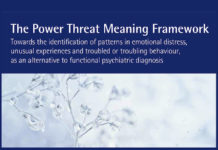Study Finds Racial Differences in Psychiatric Diagnosis and Treatment
Black patients are almost twice as likely as their white counterparts to be diagnosed with schizophrenia while whites are significantly more likely to receive a diagnosis of anxiety or depression, according to a recent study published in the journal Psychiatric Services. The researchers also found that the likelihood of receiving psychotherapy for any diagnosis (34%), regardless of race or ethnicity, was much lower than the likelihood of receiving a psychotropic medication (73%).
Young Transgender Women Burdened with High Rates of Psychiatric Diagnoses
New research published in JAMA Pediatrics reveals that transgender women have more than double the prevalence of psychiatric diagnoses than the general US population. The study found that the women, who had been assigned male at birth and now identified as female, had a high prevalence of suicidality, post-traumatic stress disorder, substance abuse, generalized anxiety and major depressive disorder.
Psychologist Rethinks Psychotropic Medications, Calls for Renewed Dialogue
Psychologist and Professor Amber Gum has published the story of her personal journey of rethinking psychotropic medication in a special issue on "The Politics of Mental Health" in The Journal of Medicine and the Person. Influenced by Mad in America and the work of Robert Whitaker, Gum became aware of evidence that “suggests that psychotropic medications are less effective and more harmful than most believe” and now hopes to encourage other mental health professionals and researchers to engage in open-minded, critical self-assessment of standard practices.
When International Psychiatric Aid Gets it Wrong: Street Children in Cairo
Study questions how international psychiatric treatment of street children in Cairo could be reinforcing their marginality and vulnerability.
Enough is Enough Series, #5 – The ADHD Fiction is Exposed. The French Have...
The time has come that the fictitious ADHD qualifies for my ‘Enough is Enough’ series. It’s time to stop addressing pharmaceutical psychiatry on its own terms: its fraudulent and corrupt 'science,' its spurious 'evidence base,' and its imaginary psychiatric ‘diseases.’ I’m done with this. The evidence is in. Let’s get real. Psychiatry has become a profession of drug pushers. As a psychiatrist I am beyond troubled. Let’s get real.
The Power Threat Meaning Framework One Year On
The team that developed the Power Threat Meaning framework as a diagnostic alternative reflects on the response to the framework after one year.
Professionals Push Back on Psychiatric Diagnostic Manual, Propose Alternatives
Criticisms of the DSM-5 spark alternative proposals and calls to reform diagnostic systems in the mental health field.
Childhood Bipolar Disorder More Rare Than Previously Claimed, Study Finds
Re-examination of meta-analytic claims finds the prevalence of pediatric bipolar disorder is close to zero.
How Race and Class Impact Schizophrenia and Substance-Use Diagnoses
A new article explores how psychiatric diagnoses are differentially applied to people of different racial and class backgrounds.
Neoliberalism Drives Increase in Perfectionism Among College Students
Meta-analytic study detects upsurge in patterns of perfectionism in young adults and explores how neoliberalism contributes to this trend.
Researchers Address Dangers of Polypharmacy and Inappropriate Medication Use
A new special issue brings together articles exploring the harmful effects of simultaneous multiple medication use.
More Children Receiving ‘Off-Label’ Antipsychotics for ‘ADHD’
Over the past twenty years, the number of prescriptions for atypical antipsychotics written to children and young adults between four and eighteen has increased...
Racism Linked to Poor Health Outcomes in Children
New study finds children who have been exposed to discrimination show higher likelihood of anxiety, depression, and ADHD.
Current Immigration Policies Create Mental Health Vulnerabilities for Families
Researchers investigate the impact of immigration policies on the mental health of arriving Mexican and Central American immigrants.
Poor and Foster Care Children More Likely to be Diagnosed and Treated with Psychiatric...
Study details Medicaid-insured birth cohort’s exposure to psychiatric medications and mental health services.
Children with Autism may be Over-diagnosed with ‘ADHD’
A commonly used ADHD diagnostic measure may find overlapping symptoms in autism and ADHD, resulting in over-diagnosis.
Most Off-Label Prescribing of Antidepressants Lacks Strong Scientific Evidence
A new study, published in the British Medical Journal, investigates the prevalence of off-label prescribing for antidepressant medication in primary care settings.
Many People Taking Antidepressants Don’t Have Any Mental Disorders
The majority of people taking antidepressant medications have never had major depressive disorder, and 38% have never met criteria for having any mental disorder.
Psychology Must Become a Sanctuary Discipline to Heal Racial Trauma
Researchers explore pathways of healing racial trauma in Latinx immigrant communities.
Unanswered Questions in New Mental Health Screening Program for Children
An article presents new screening tools for pediatric depression and anxiety—but fails to answer its own questions about efficacy.
Certain Antihypertensive Drugs Linked to Mood Disorders
A new study suggests that some antihypertensive drugs are associated with increased risk of bipolar disorder and depression, while other antihypertensive drugs are actually associated with decreased risk.
New Study Challenges “Late-Onset ADHD”
Researchers found that 95% of adolescents and adults who screened positive for late-onset ADHD did not merit the actual diagnosis.
3 Facts All Parents Should Know About ADHD Stimulant Drugs
Medicating children for a host of mental disorders has become very popular in some parts of the USA. More than 8 million kids from 6 months to 17 years of age are on pharmaceutical drugs in this wonderful country. We lead the world in drugging youth for behavioral, cognitive and attention issues. We are once again #1. But I would like to share with parents as well as adults working with children a few not so readily available facts related to medicating kids for behavior issues.
How Western Psychiatry Harms Alternative Understandings of Mental Health
An anthropological look at the Global Mental Health (GMH) movement suggests several ethical problems and contradictions in its mission.
Treating Metabolic Conditions May Resolve Some Depressive Symptoms
New research suggests that treatable metabolic abnormalities underlie some treatment-resistant cases of depression—and treating the metabolic condition has the possibility of dramatically reducing depressive symptoms




























